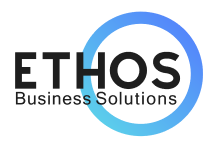Introduction: Why Data Integrity Matters
Data integrity is the backbone of effective decision-making in NetSuite. As companies scale, integrate third-party systems, or undergo process changes, data inconsistencies can surface. These not only erode trust in reporting but also lead to operational inefficiencies, financial misstatements, and compliance risks.
This guide outlines how to systematically identify, resolve, and prevent data integrity issues in NetSuite.
-
- Understand the Root Causes of Data Integrity Issues
-
- Manual data entry errors
-
- Disconnected third-party integrations
-
- Incomplete or inaccurate data migrations
-
- Lack of validation rules or standardization
-
- Poorly managed user roles and permissions
-
- Inadequate audit trails and controls
-
- Understand the Root Causes of Data Integrity Issues
-
-
-
- Schedule automated reports to alert admins of integrity breaches.Use Saved Searches to Audit Data
-
- Identify missing or duplicate fields
-
- Use formulas to check for value discrepancies.
-
- Schedule automated reports to alert admins of integrity breaches.Use Saved Searches to Audit Data
-
-
-
-
-
- Perform quarterly role and permission auditsStrengthen Role-Based Access Controls
-
- Restrict editing of critical fields to authorized users
-
- Enforce field-level security
-
- Perform quarterly role and permission auditsStrengthen Role-Based Access Controls
-
-
-
- Automate Validation with Workflows
-
- Required fields at record save
-
- Conditional logic to prevent incorrect entries
-
- Alerts and approval routing for exceptions
-
- Automate Validation with Workflows
-
-
-
- Log and report failures automaticallyOptimize Third-Party Integrations
-
- Validate data pre-import
-
- Provide transformation mapping
-
- Log and report failures automaticallyOptimize Third-Party Integrations
-
-
-
-
-
- Case Insights
-
- A global distributor used custom records to track revenue vs. cost variances, streamlining reconciliation and enhancing reporting accuracy.
Implement Custom Records for Exception Management
-
- Track exceptions and corrections directly in NetSuite
-
- Link them to transactions for transparency
-
- Automate notification and resolution workflows
-
- Case Insights
-
-
-
-
-
- Utilize Ethos’ EZsuite Mass:
-
- EZsuite Mass is a Ethos-built toolset designed to accelerate NetSuite data clean-up and governance initiatives. It provides a scalable interface to perform mass updates, deletions, and data transformations across standard and custom NetSuite records, reducing manual effort and risk.
Launch Data Clean-up & Governance
-
- Conduct a clean-up across key tables (e.g., items, vendors, customers)
-
- Use mass updates or CSV imports
-
- Standardize naming conventions and enforce required fields
-
- Utilize Ethos’ EZsuite Mass:
-
-
-
-
-
- Embed field-level help and tooltipsTrain Users and Document Processes
-
- Develop user guides and SOPs
-
- Provide regular training sessions
-
- Embed field-level help and tooltipsTrain Users and Document Processes
-
-
-
- Establish On-going Monitoring and Support
-
- On-going health checks and reporting
-
- Managed Services (e.g., Ethos 360Care)
-
- Dashboards that track KPIs and data anomalies
-
- Establish On-going Monitoring and Support
Conclusion: Ensuring Long-Term Data Integrity
Fixing data integrity in NetSuite requires a balance of technical tools, governance processes, and user enablement. With the right structure and continuous attention, your ERP can deliver the trusted insights it was designed to provide.
Need help restoring trust in your NetSuite data? Contact Ethos Business Solutions for a tailored health check or to learn more about EZsuite Mass.
Introduction: Why Data Integrity Matters
Data integrity is the backbone of effective decision-making in NetSuite. As companies scale, integrate third-party systems, or undergo process changes, data inconsistencies can surface. These not only erode trust in reporting but also lead to operational inefficiencies, financial misstatements, and compliance risks.
This guide outlines how to systematically identify, resolve, and prevent data integrity issues in NetSuite.
- Understand the Root Causes of Data Integrity Issues
- Manual data entry errors
- Disconnected third-party integrations
- Incomplete or inaccurate data migrations
- Lack of validation rules or standardization
- Poorly managed user roles and permissions
- Inadequate audit trails and controls
- Use Saved Searches to Audit Data
- Identify missing or duplicate fields
- Use formulas to check for value discrepancies.
- Schedule automated reports to alert admins of integrity breaches.
- Strengthen Role-Based Access Controls
- Restrict editing of critical fields to authorized users
- Enforce field-level security
- Perform quarterly role and permission audits
- Automate Validation with Workflows
- Required fields at record save
- Conditional logic to prevent incorrect entries
- Alerts and approval routing for exceptions
- Optimize Third-Party Integrations
- Validate data pre-import
- Provide transformation mapping
- Log and report failures automatically
- Implement Custom Records for Exception Management
- Track exceptions and corrections directly in NetSuite
- Link them to transactions for transparency
- Automate notification and resolution workflows
- Case Insights
- A global distributor used custom records to track revenue vs. cost variances, streamlining reconciliation and enhancing reporting accuracy.
- Launch Data Clean-up & Governance
- Conduct a clean-up across key tables (e.g., items, vendors, customers)
- Use mass updates or CSV imports
- Standardize naming conventions and enforce required fields
- Utilize Ethos’ EZsuite Mass:
- EZsuite Mass is a Ethos-built toolset designed to accelerate NetSuite data clean-up and governance initiatives. It provides a scalable interface to perform mass updates, deletions, and data transformations across standard and custom NetSuite records, reducing manual effort and risk.
- Train Users and Document Processes
- Develop user guides and SOPs
- Provide regular training sessions
- Embed field-level help and tooltips
- Establish On-going Monitoring and Support
- On-going health checks and reporting
- Managed Services (e.g., Ethos 360Care)
- Dashboards that track KPIs and data anomalies
Conclusion: Ensuring Long-Term Data Integrity
Fixing data integrity in NetSuite requires a balance of technical tools, governance processes, and user enablement. With the right structure and continuous attention, your ERP can deliver the trusted insights it was designed to provide.
Need help restoring trust in your NetSuite data? Contact Ethos Business Solutions for a tailored health check or to learn more about EZsuite Mass.
Introduction: Why Data Integrity Matters
Data integrity is the backbone of effective decision-making in NetSuite. As companies scale, integrate third-party systems, or undergo process changes, data inconsistencies can surface. These not only erode trust in reporting but also lead to operational inefficiencies, financial misstatements, and compliance risks.
This guide outlines how to systematically identify, resolve, and prevent data integrity issues in NetSuite.
Understand the Root Causes of Data Integrity Issues
- Manual data entry errors
- Disconnected third-party integrations.
- Incomplete or inaccurate data migrations
- Lack of validation rules or standardization
- Poorly managed user roles and permissions
- Inadequate audit trails and controls
- Schedule automated reports to alert admins of integrity breaches.
Use Saved Searches to Audit Data
- Identify missing or duplicate fields.
- Use formulas to check for value discrepancies.
- Perform quarterly role and permission audits.
- Enforce field-level security.
Strengthen Role-Based Access Controls
- Restrict editing of critical fields to authorized users.
- Enforce field-level security
Automate Validation with Workflows
- Required fields at record save.
- Conditional logic to prevent incorrect entries.
- Alerts and approval routing for exceptions.
- Log and report failures automatically.
Optimize Third-Party Integrations
- Validate data pre-import.
- Provide transformation mapping
Case Insights
A global distributor used custom records to track revenue vs. cost variances, streamlining reconciliation and enhancing reporting accuracy.
Implement Custom Records for Exception Management
- Track exceptions and corrections directly in NetSuite.
- Link them to transactions for transparency.
- Automate notification and resolution workflows.
Utilize Ethos’ EZsuite Mass
EZsuite Mass is a Ethos-built toolset designed to accelerate NetSuite data clean-up and governance initiatives. It provides a scalable interface to perform mass updates, deletions, and data transformations across standard and custom NetSuite records, reducing manual effort and risk.
Launch Data Clean-up & Governance
- Conduct a clean-up across key tables (e.g., items, vendors, customers)
- Use mass updates or CSV imports
- Standardize naming conventions and enforce required fields
- Embed field-level help and tooltips
Train Users and Document Processes
- Develop user guides and SOPs
- Provide regular training sessions
Establish On-going Monitoring and Support
- On-going health checks and reporting.
- Managed Services (e.g., Ethos 360Care).
- Dashboards that track KPIs and data anomalies
Conclusion: Ensuring Long-Term Data Integrity
Fixing data integrity in NetSuite requires a balance of technical tools, governance processes, and user enablement. With the right structure and continuous attention, your ERP can deliver the trusted insights it was designed to provide.
Need help restoring trust in your NetSuite data? Contact Ethos Business Solutions for a tailored health check or to learn more about EZsuite Mass.


